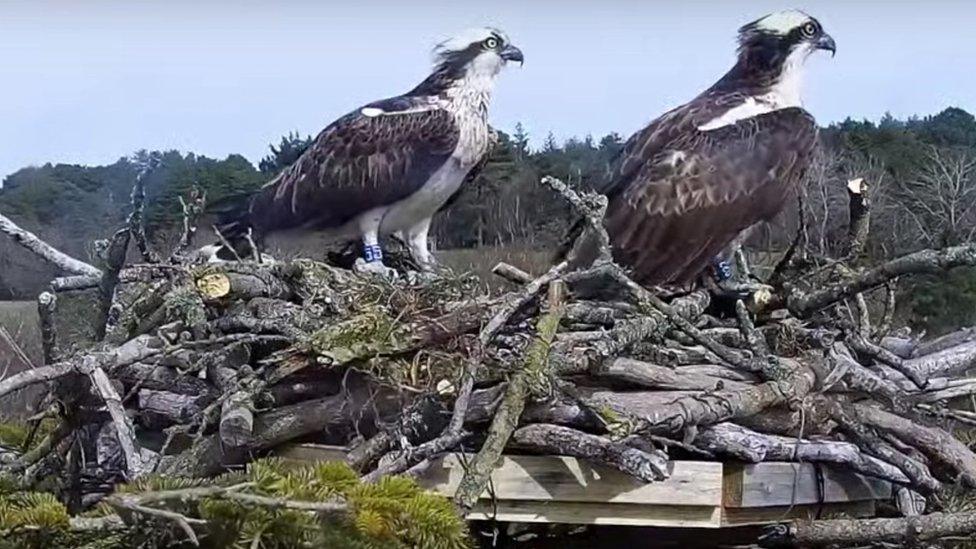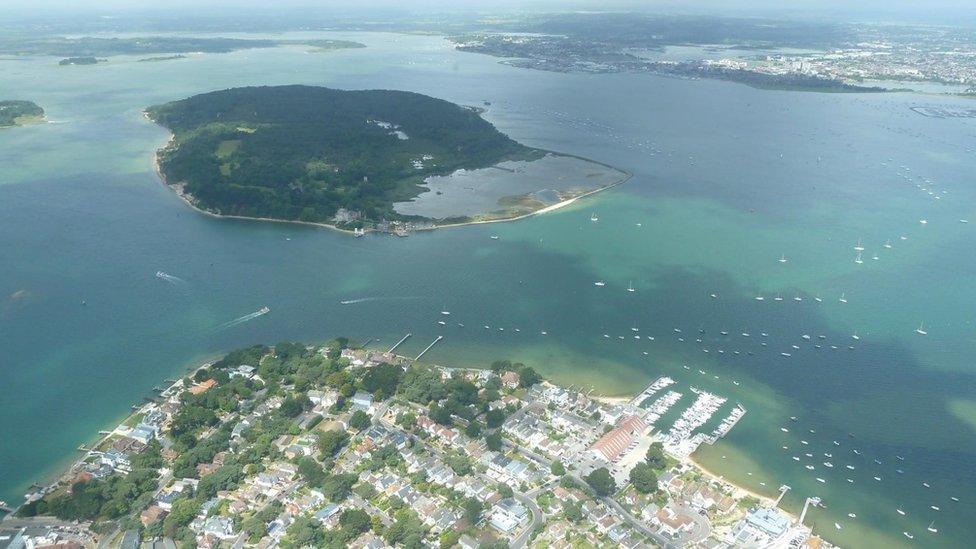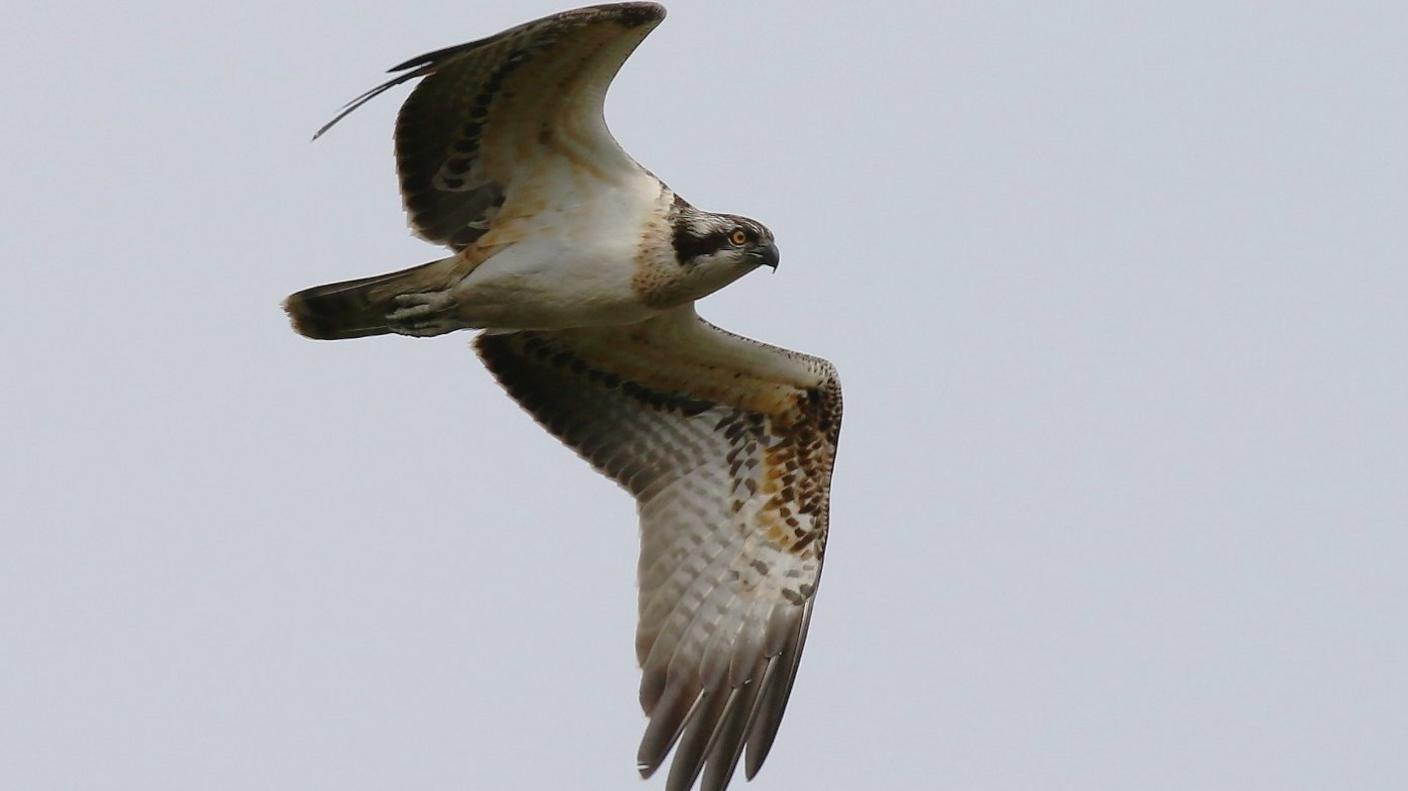Poole Harbour osprey conservationists spot third egg
- Published

The female (left) and male returned to Poole from North Africa
A pair of ospreys nesting on the Dorset coast have produced a third egg, conservationists have revealed.
A reintroduction programme began in Poole Harbour in 2017 with the long-term aim of establishing a breeding population.
Birds of Poole Harbour initially said the female - known as C17 - laid an egg on Saturday, but that three could now be seen.
It posted a tweet saying "exciting is an understatement".
Earlier this month Birds of Poole Harbour said the pair had returned safely on their migration from Africa and were nesting at an undisclosed location in the area.
They first met last summer, although the male was too young to breed.
When news of an egg in the nest emerged last week, TV naturalist Chris Packham said it was a s"sensational" development.
Birds of Poole Harbour tweeted there was now a clutch of three eggs after a third was laid shortly before 09:00 BST.
"We expect that this egg will complete the clutch. Although it's possible for four eggs to be laid, it's very unusual, and even more so in first-time pairs," it added.

The birds of prey are annual visitors to Poole Harbour
It said the eggs were due to hatch in late-May.
Live webcams, external have been installed on several of the nests so schools and members of the public can observe the ospreys.
The fish-eating birds of prey historically bred across the British Isles but populations drastically declined in the Middle Ages.
In 2017, Birds of Poole Harbour and the Roy Dennis Wildlife Foundation began the five-year "translocation" scheme, which involved transferring six-week-old chicks from sustainable populations in Scotland to Poole Harbour.
Other successful osprey conservation programmes have run in Rutland and Kielder Forest in Northumberland.

Follow BBC South on Facebook, external, Twitter, external, or Instagram, external. Send your story ideas to south.newsonline@bbc.co.uk, external.
- Published20 June 2017
